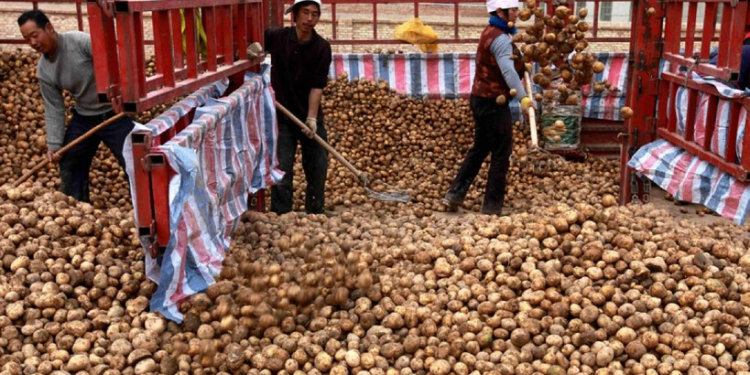A dietary shift from rice to potatoes could ‘notably reduce’ the climate and environmental impacts of staple crop agriculture in China, according to a new study. As Giuliana Vigloine reports for Eco-Business, the research, published in Nature Food, examines the land use, water use and greenhouse gas emissions associated with growing four staple crops: rice, wheat, maize and potatoes.
It finds that a large-scale dietary shift towards potatoes, combined with better growing methods, could reduce the greenhouse gas emissions of these staples by up to 25 per cent.
In addition to the emissions reductions, the researchers find that integrating more potatoes into the diet would cut the total land used for staple-crop agriculture by about 17 per cent by 2030 – even when accounting for the country’s growing calorific need.
However, the authors note that it remains to be seen whether such a major dietary shift can be carried out on a large scale.
In 2015, the Chinese government implemented a national strategy known as the “Potato as Staple Food” policy. Its stated aim is to improve food security – the country’s ability to feed its own population without reliance on imports – by increasing both production and consumption of potatoes across China.





